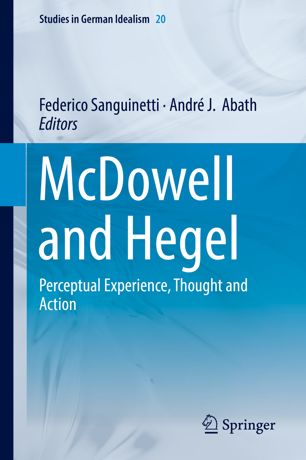

Most ebook files are in PDF format, so you can easily read them using various software such as Foxit Reader or directly on the Google Chrome browser.
Some ebook files are released by publishers in other formats such as .awz, .mobi, .epub, .fb2, etc. You may need to install specific software to read these formats on mobile/PC, such as Calibre.
Please read the tutorial at this link: https://ebookbell.com/faq
We offer FREE conversion to the popular formats you request; however, this may take some time. Therefore, right after payment, please email us, and we will try to provide the service as quickly as possible.
For some exceptional file formats or broken links (if any), please refrain from opening any disputes. Instead, email us first, and we will try to assist within a maximum of 6 hours.
EbookBell Team

4.8
54 reviewsThis book presents a comprehensive and detailed exploration of the relationship between the thought of G.W.F. Hegel and that of John McDowell, the latter of whom is widely considered to be one of the most influential living analytic philosophers. It serves as a point of entry in McDowell’s and Hegel’s philosophy, and a substantial contribution to ongoing debates on perceptual experience and perceptual justification, naturalism, human freedom and action. The chapters gathered in this volume, as well as McDowell’s responses, make it clear that McDowell’s work paves the way for an original reading of Hegel’s texts. His conceptual framework allows for new interpretive possibilities in Hegel’s philosophy which, until now, have remained largely unexplored. Moreover, these interpretations shed light on various aspects of continuity and discontinuity between the philosophies of these two authors, thus defining more clearly their positions on specific issues. In addition, they allow us to see Hegel’s thought as containing a number of conceptual tools that might be useful for advancing McDowell’s own philosophy and contemporary philosophy in general.